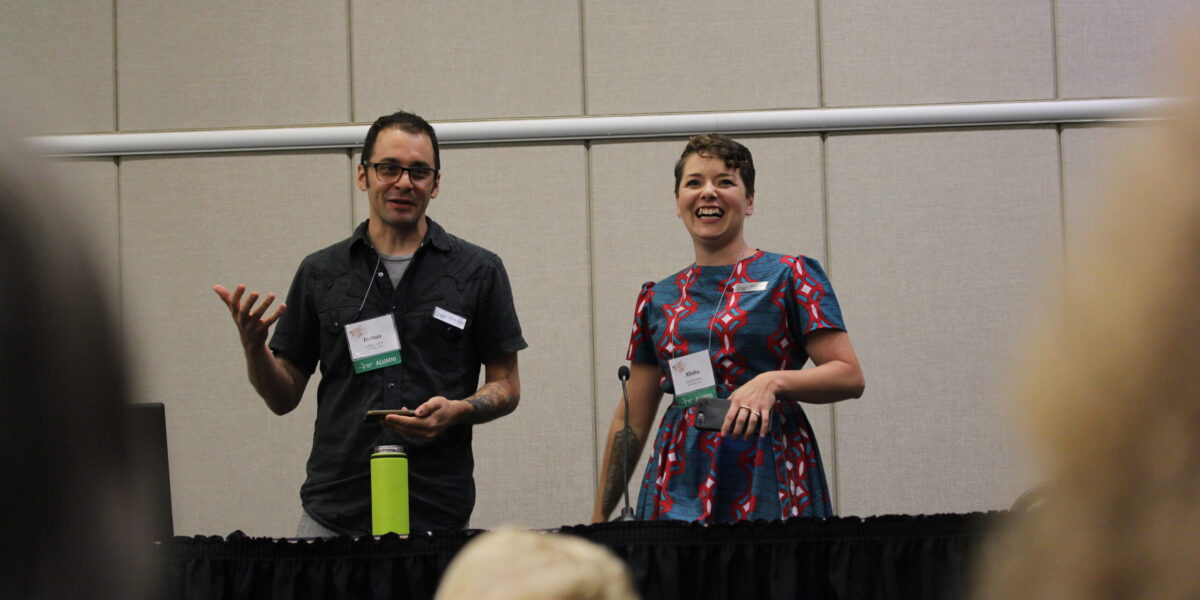KANSAS CITY (Mennonite Mission Network) – As attendees filtered into the meeting room and shook off the light rain of a slate gray Kansas City afternoon, the Garbers opened their seminar with a game of ‘Name that tune.’
The setup for the game was simple. Alisha Garber read off two song titles: one contemporary worship tune and the other a secular, chart-topping hit. It was up to the audience to determine the year that both songs were released. ‘Shout to the Lord’ and ‘I Will Always Love You’ by Whitney Houston shared a release date of 1994. ‘I Can Only Imagine,’ by Mercy Me and ‘No Scrubs’ by TLC in 1999. ‘Oceans,’ a song that was sung at convention worship earlier in the day, was released in 2013, the same year as ‘Wrecking Ball’ by Miley Cyrus.
The point, the Garbers explained, was that for many people in and outside of the church, ‘contemporary’ worship music can sound anything but, especially compared to recent popular songs and sounds.
Alisha and Joshua Garber led the seminar ‘Post-modern worship that crosses barriers’ on Thursday, July 4, 2019, as part of the Mennonite Church USA convention in Kansas City.
Alisha and Joshua, along with their son, Asher, serve in
Barcelona, Catalonia (a region where allegiance to Spain vies with voices
calling for independence).
Since 2017, they have worked with the leaders of Comunidad Evangélica Menonita in Barcelona, focusing on congregational mission and youth outreach to the local community.
“In a post-modern world, we should be constantly adapting and contextualizing things to fit and have meaning in the context we’re in," said Alisha. For her and Joshua, they’ve worked at adapting worship music into the contexts of communities in Phoenix, Lithuania, and now in Barcelona.
"We simply wanted to make worship where we could enjoy every song equally and feel that all the songs belonged in the same set of music," explained Joshua.
The desire to contextualize worship music most recently led them to retranslate worship songs for their church community in Barcelona, or as the Garbers describe it, “rebaptizing songs with an anabaptist theology.”
"We’re trying to make space for more people to feel comfortable," said Joshua. "When the song we’re playing is not the song you connect with, rejoice and know that the person next to you might be having a profound experience."








